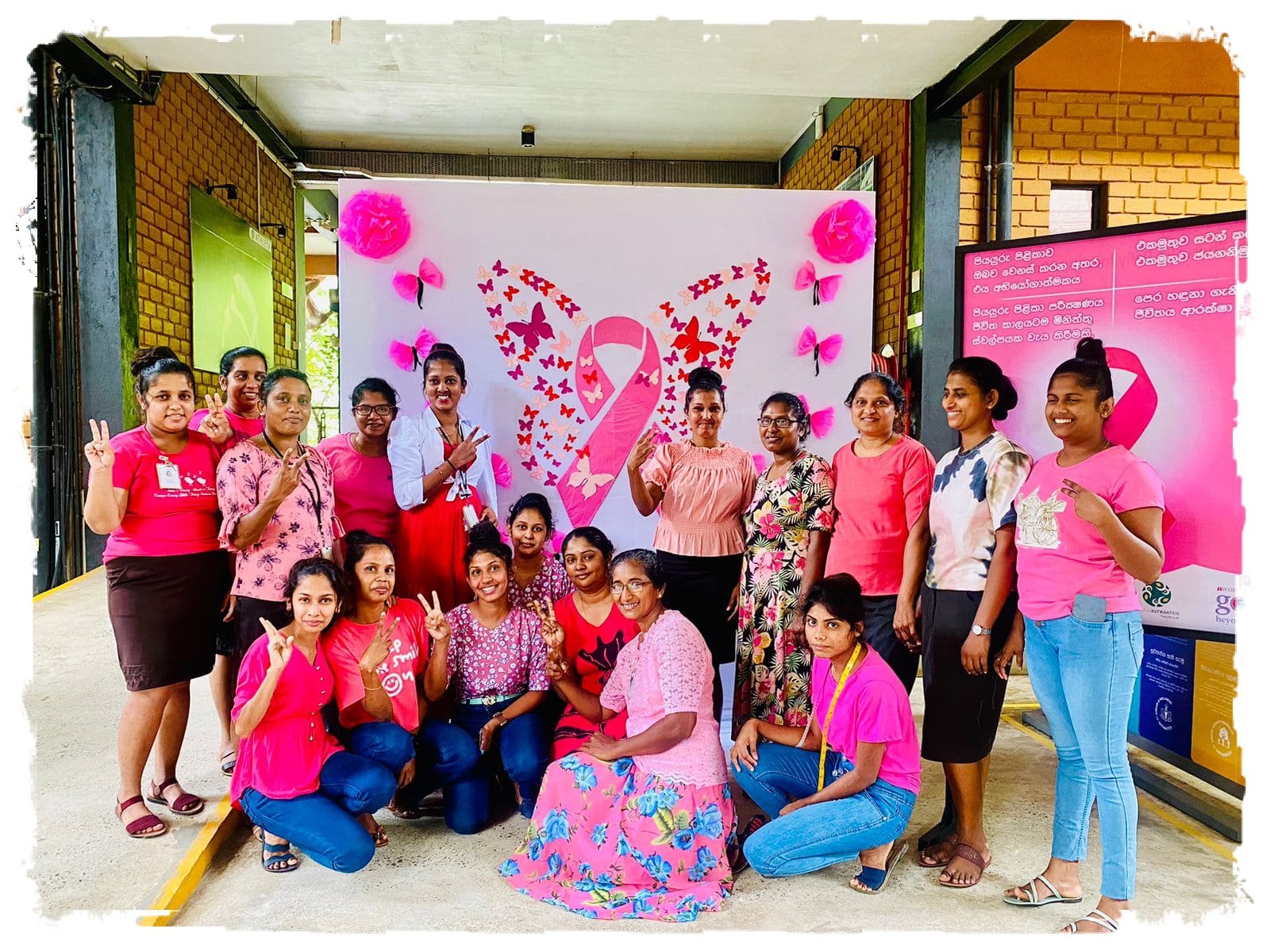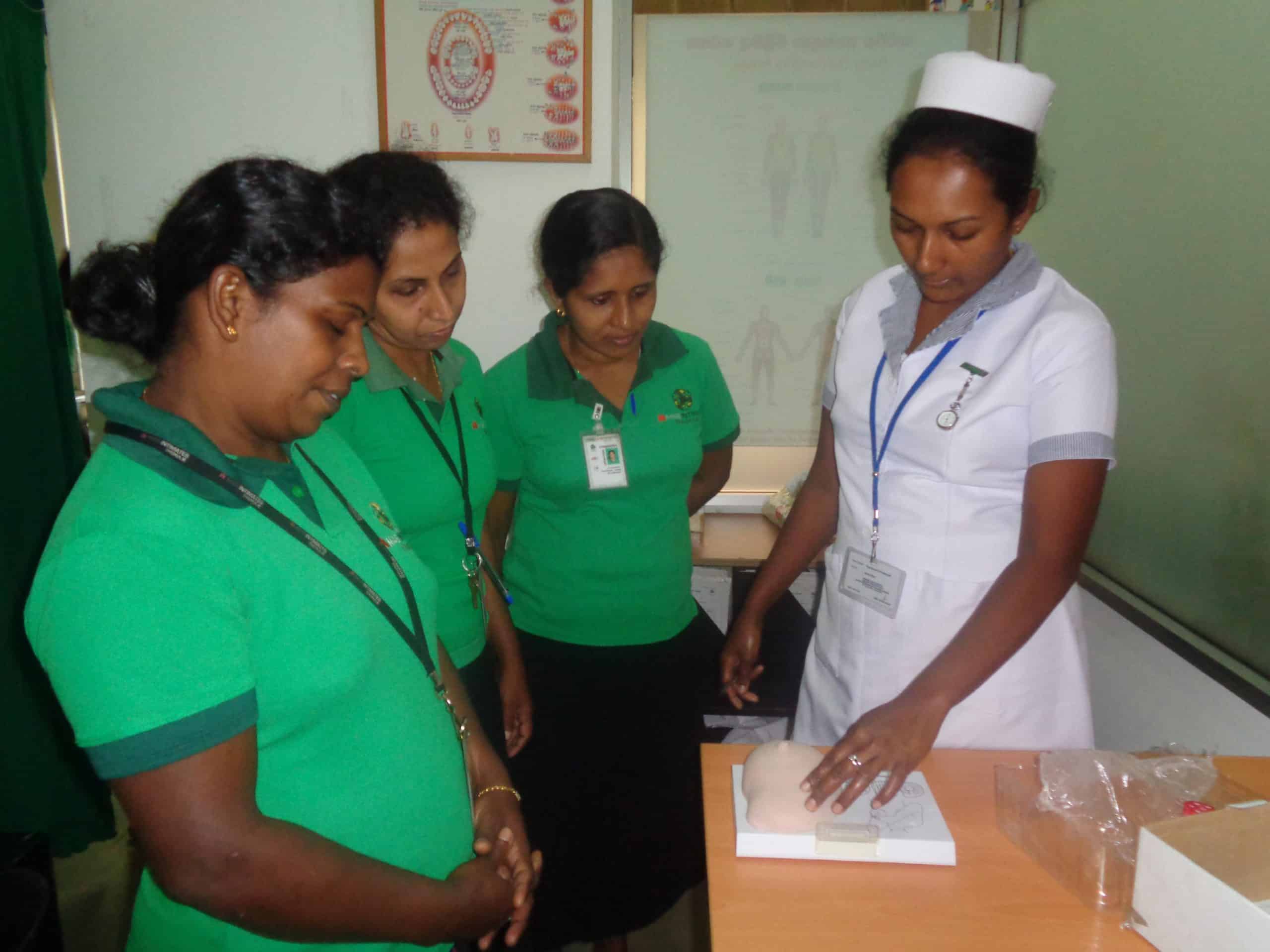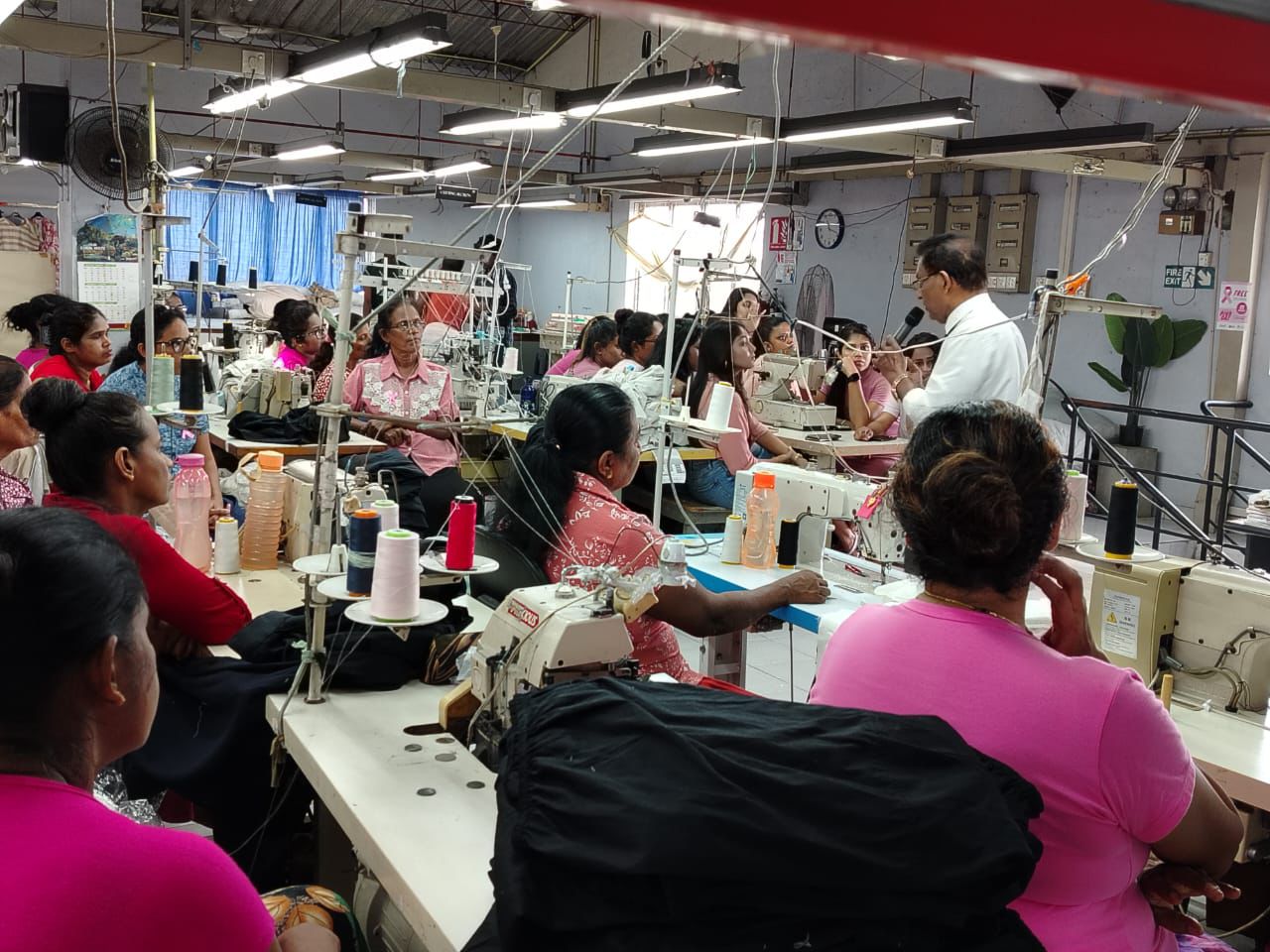
A Decade of Aloka: Advancing Health through Empowerment and Action
By Shevanthi Fernando (General Manager – Sustainability and Diversity & Inclusion) · 04 Nov 2024
Ten years ago, the Aloka Breast Cancer Awareness Program began with a clear mission: to empower women in our workforce and communities through knowledge, support, and early detection. At the time, conversations around breast cancer were stifled by stigma and fear, often preventing timely care. Acknowledging that silence could cost lives, we set out to break these barriers, enabling women to take control of their health.
Today, Aloka stands as more than a health initiative—it has become a sustained movement of education, action, and hope. As we reflect on the past decade, we take pride not only in the impact we have achieved but also in the cultural shift we have fostered, both in the workplace and the broader community.
A nurse demonstrates how to identify breast lumps – a crucial step in early detection and breast health awareness.
Demonstrating Impact: A Culture of Awareness and Action
In the past decade, Aloka has reached over 1.4 million people through 3,800 awareness sessions. While it began within our manufacturing facilities, the program has grown to engage local communities and households, reflecting its broad impact and outreach. Through these efforts, we have empowered women to practice self-examinations, transforming passive awareness into proactive health management.
As a result, 363 women identified lumps through self-exams, and 253 sought medical advice. Out of these cases, 10 women were diagnosed with malignant tumors. Thanks to early intervention, all received timely treatment and survived, exemplifying how awareness and prompt action save lives.
The success of Aloka extends beyond individual outcomes, evolving to build a culture of care that supports open conversations about well-being, fostering trust and empowering others to take preventive action.
Aloka Pink Day Celebrations across MAS Intimates locations to create necessary awareness around Breast Cancer.
Aligning with Global Health Priorities
Aloka’s impact aligns with the United Nations Sustainable Development Goals (SDGs), particularly SDG 3 (Good Health and Well-being) and SDG 5 (Gender Equality). By encouraging preventive healthcare and reducing premature mortality from non-communicable diseases, we contribute directly to global efforts to promote health equity.
The workplace has emerged as a powerful platform for advancing these goals. Since employees spend much of their time at work, organizations are well-positioned to integrate health education into daily routines. Aloka demonstrates how such initiatives can strengthen the well-being of employees, generating positive ripple effects that reach homes, families, and entire communities.
Partnering with corporates and other communities to drive community health forward: together, we continue to raise awareness, promote early detection, and provide essential health resources.
Expanding the Program to Address Broader Health Needs
While Aloka’s initial focus was on breast cancer awareness, the program has evolved to address other pressing health challenges, including cervical, oral, and prostate cancers. We are committed to expanding our efforts to reach underserved populations, ensuring that knowledge and care remain accessible to those most in need.
We are exploring innovative tools for affordable cancer detection and enhancing screening services at our facilities, providing training in grief counseling and palliative care, offering comprehensive support to both patients and caregivers. By partnering with youth groups and universities, we aim to foster preventive care awareness and encourage proactive health management from an early age.
Intimates leadership committed to create continuous awareness on breast cancer and other cancers.
A Call to Action: Advancing the Mission Together
As we mark this ten-year milestone, we acknowledge that our work is far from complete. The fight against cancer—and other non-communicable diseases—demands ongoing dedication. Breaking health-related stigmas, promoting early detection, and building a culture of openness requires the collective efforts of individuals, organizations, and communities.
Aloka’s success would not have been possible without the commitment of our employees, healthcare professionals, volunteers, and community partners. From survivors who have bravely shared their stories to advocates promoting awareness, each contribution has played a crucial role in driving this movement forward. Their resilience, courage, and unity inspire us to expand our impact in the years to come.
As we step into the future, we invite new partners to join us on this journey. Together, we can strengthen support networks, reach more people, and create lasting change. Aloka is not just a program—it is a commitment to action and empowerment.
The next decade will be guided by the same principles that have brought us this far: collaboration, compassion, and shared responsibility. Together, we can transform lives—one conversation, one action, and one act of courage at a time. Let us build a future where early detection becomes the norm, and every community thrives in health and well-being.






